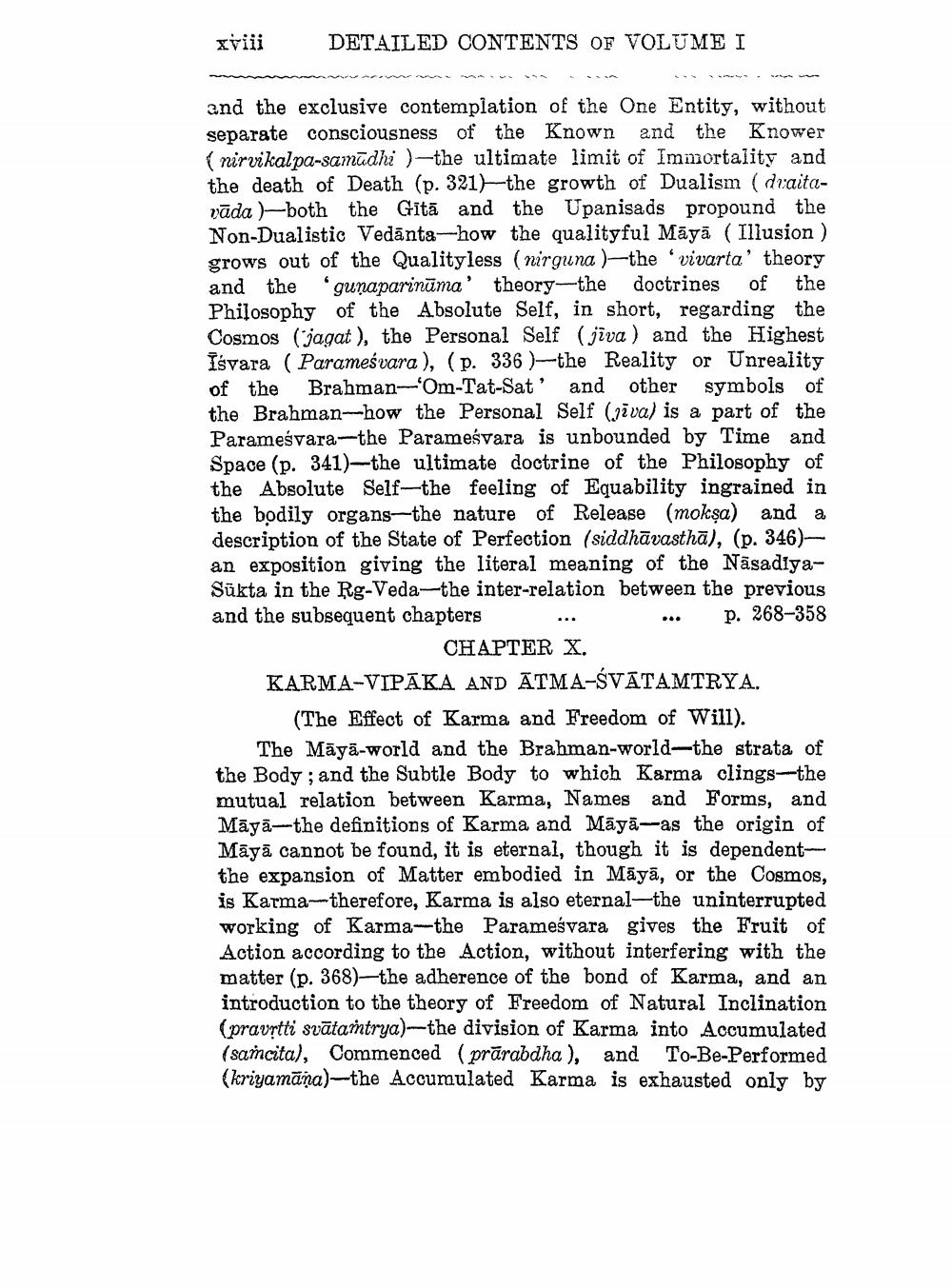________________
xviii
DETAILED CONTENTS OF VOLUME I
and the exclusive contemplation of the One Entity, without separate consciousness of the Known and the Knower ( nirvikalpa-samadhi )-the ultimate limit of Immortality and the death of Death (p. 321)-the growth of Dualism (dvaitavāda )both the Gītā and the Upanisads propound the Non-Dualistic Vedānta-how the qualityful Māyā (Illusion ) grows out of the Qualityless (nirguna )--the 'vivarta' theory and the 'gunaparinūma' theory--the doctrines of the Philosophy of the Absolute Self, in short, regarding the Cosmos (jagat ), the Personal Self (jiva) and the Highest Isvara ( Parameśvara), (p. 336 )--the Reality or Unreality of the Brahman-'Om-Tat-Sat' and other symbols of the Brahman--how the Personal Self (jiva) is a part of the Parameśvara-the Parameśvara is unbounded by Time and Space (p. 341)—the ultimate doctrine of the Philosophy of the Absolute Self-the feeling of Equability ingrained in the bodily organs,the nature of Release (mokşa) and a description of the State of Perfection (siddhāvasthā), (p. 346) an exposition giving the literal meaning of the NāsadiyaSükta in the Rg-Veda--the inter-relation between the previous and the subsequent chapters
... p. 268-358 CHAPTER X. KARMA-VIPĀKA AND ATMA-ŚVĀTAMTRYA.
(The Effect of Karma and Freedom of Will). The Māyā-world and the Brahman-world--the strata of the Body; and the Subtle Body to which Karma clings-the mutual relation between Karma, Names and Forms, and Māyā--the definitions of Karma and Māyā-as the origin of Māyā cannot be found, it is eternal, though it is dependentthe expansion of Matter embodied in Māyā, or the Cosmos, is Karma--therefore, Karma is also eternal-the uninterrupted working of Karma--the Parameśvara gives the Fruit of Action according to the Action, without interfering with the matter (p. 368)-the adherence of the bond of Karma, and an introduction to the theory of Freedom of Natural Inclination (pravrtti svātamtrya)--the division of Karma into Accumulated (samcita), Commenced (prārabdha), and To-Be-Performed (kriyamāna)—the Accumulated Karma is exhausted only by




